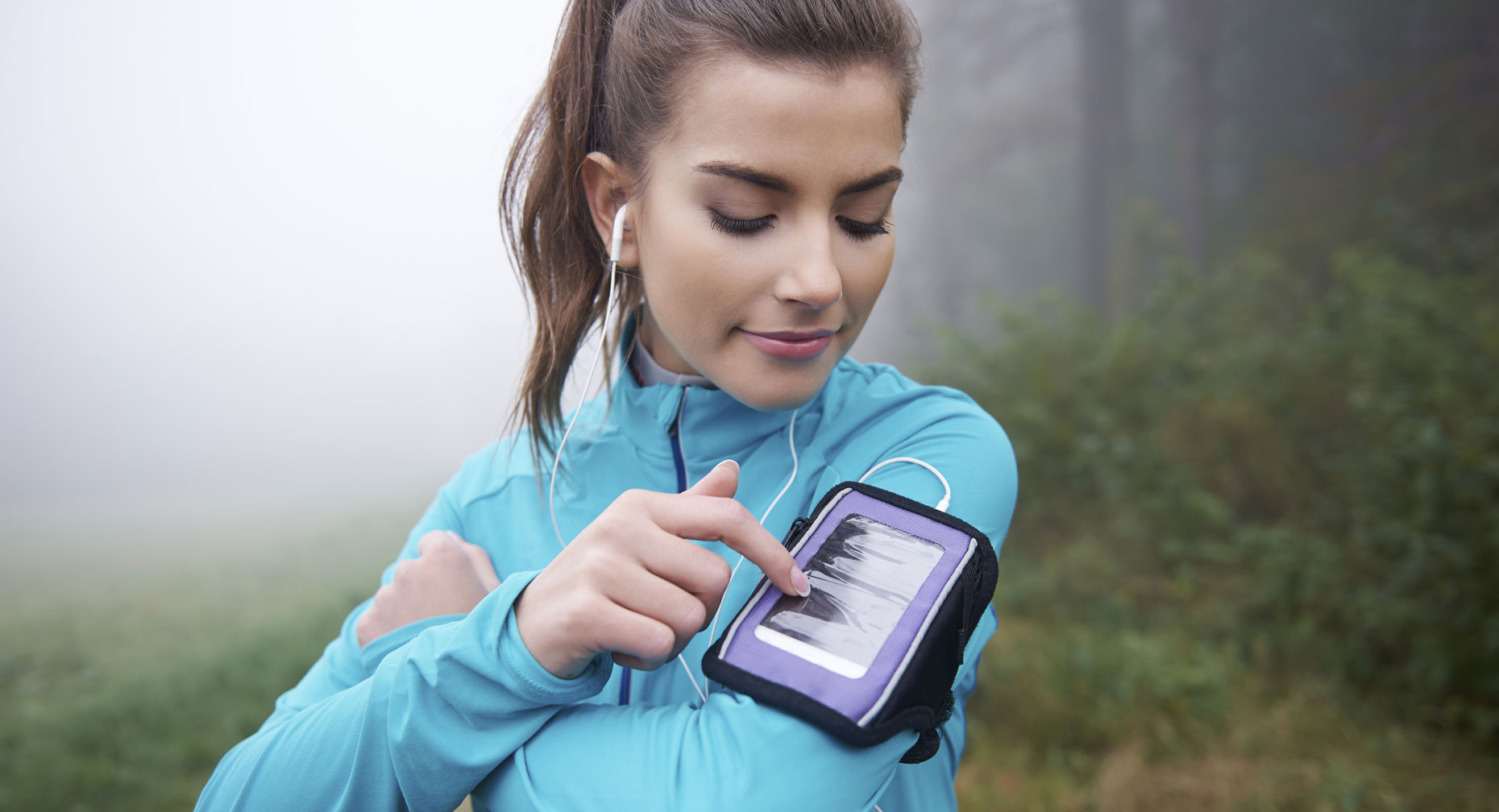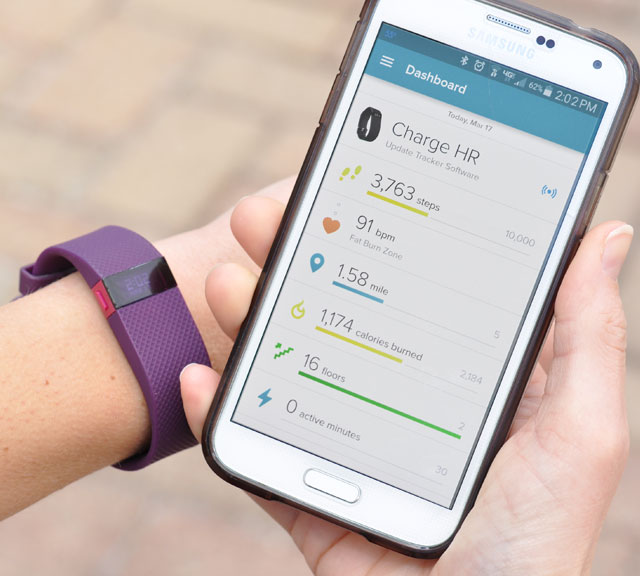Make Your Smart Phone Your Fitness Buddy

Find Your Perfect Match
Answer a few questions and we'll provide you with a list of primary care providers that best fit your needs.
Most of us have good intentions when it comes to staying physically active. But it’s easy to put off a daily jog or weekly Zumba class when life gets busy. That’s why you might want to consider a fitness app to keep your exercise program on track, or help you get started. Your smart phone can be your best friend when you’re determined to get fit. Here’s why.
What Kind of Apps are Available?
You'll find a wide variety of apps to support your health goals: fitness, healthy eating, online training and even social support. If you're comfortable with technology, apps can be a great training partner, give you terrific workout ideas and provide valuable nutrition tips. You'll find dozens of effective apps that work on iPhones and Android smart phones. Or you may prefer wearable fitness support — trendy bracelets or clips that you can wear all the time to track your activity levels.

Why Use a Fitness App?
First, it helps keep you accountable. Some will even send messages if you've been skipping your workouts. And it lets you keep track of your activity. When you see that you haven’t been active in a few days — or weeks — you’ll know it’s time to get moving again. An app will also give you a clear picture of just how much you’ve been working out.
Do Fitness Apps Really Work?
“A fitness app can help you achieve long-term results if you get into the habit of logging your exercise regularly,” Dr. Joshua Ordway says. “An app can encourage you to get into a healthy routine. And once you’ve established that habit, you’ll want to compare your performances.” An app can help you keep physical activity front and center, which means you’ll do it more often.
If you're comfortable with technology, apps can be a great training partner, give you terrific workout ideas and provide valuable nutrition tips.
How do I Know which App is Best for Me?
That depends on your activity — for example, running or Zumba, biking or yoga. And you'll want to find one that’s easy to use. Figure out what you want to track, like heart rate and distance, and make sure that app works well for your purposes. Otherwise, no matter how sophisticated it is, you’re not going to use it.
Some free apps to try:
- My Fitness Pal
 : Tracks your exercise, links to other fitness apps — and features a database of 5 million foods. You can import recipes from websites and track steps.
: Tracks your exercise, links to other fitness apps — and features a database of 5 million foods. You can import recipes from websites and track steps. - Endomondo
 : Uses GPS to track your activity, speed, distance and more. Also log indoor workouts, keep a training log, send audio pep talks to friends, and share results on social media.
: Uses GPS to track your activity, speed, distance and more. Also log indoor workouts, keep a training log, send audio pep talks to friends, and share results on social media. - Map My Fitness
 : Lets you log more than 600 different types of workouts and record GPS-based activities to see detailed stats.
: Lets you log more than 600 different types of workouts and record GPS-based activities to see detailed stats. - Run Keeper
 : Helps you find and follow pre-planned routes, set and follow a training plan. You can also add indoor cardio and gym activities.
: Helps you find and follow pre-planned routes, set and follow a training plan. You can also add indoor cardio and gym activities. - Withings
 : Lets you track everyday activity and heart rate – even invite friends to steps challenges. Connects to health trackers for health coaching.
: Lets you track everyday activity and heart rate – even invite friends to steps challenges. Connects to health trackers for health coaching.
Find Your Perfect Match
Answer a few questions and we'll provide you with a list of primary care providers that best fit your needs.
Source: Joshua Ordway, MD, Franklin Family Practice; American College of Sports Medicine; Premier Health: Technology Meets Good Health: Smart Phone Apps to Help you Live Healthier; Premier Health Specialists: Technology Can Help Keep Weight Off After Bari





